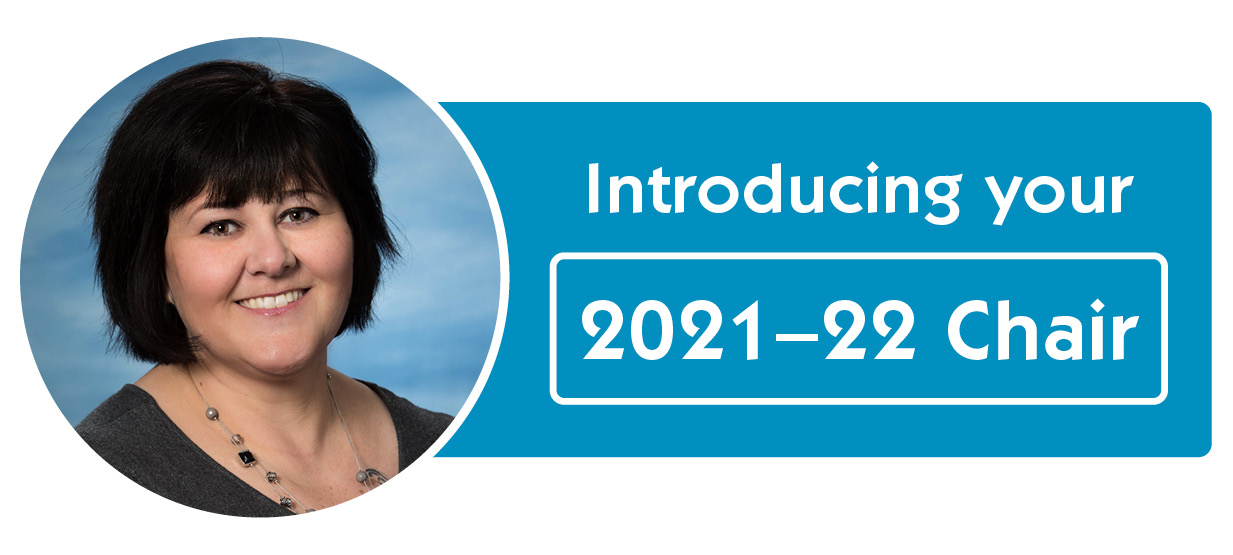Employer Newsletter – Summer 2021

Hired a recent Early Childhood Education graduate? Here’s what you need to know to support new RECEs.
Early childhood education is a care and relationship-based practice. To support the well-being and holistic development of children, RECEs need theoretical knowledge about child development, curriculum and pedagogy, for example, and the skills to apply that knowledge in practice. That’s why practicum placements are a key component of all post-secondary ECE programs – it allows students to gain experience applying their knowledge and developing their professional judgement in the dynamic and complex realities of actual practice.
The COVID-19 pandemic presented unique conditions to those in post-secondary ECE programs. While opportunities for in-person practicum placements may have been limited, post-secondary institutions worked creatively to implement alternative strategies for students to meet requirements to graduate, which included:
- changing the timing, nature or duration of practicum placements, and
- using videos, case studies, reflection assignments or research projects.
The pandemic affected each student’s practicum experience differently. To support their transition into practice, it will be important to find out their unique strengths and areas of practice they would like develop further.
Strength-based practice
Post-secondary institutions identified key strengths of their newest graduates – despite their fewer in-practice hours – including:
-
Knowledge and understanding of health and safety protocols;
-
Adapting their practice to suit the needs of the learning environment, such as moving from in-person to virtual environments and engaging with others in new ways. Students – and now, graduates – have demonstrated their ability to be flexible and resilient; and
-
Use of technology (strong digital literacy) and communication skills.
They’re also skilled in observing children, pedagogical documentation and critical reflection on practice approaches. These strengths provide a foundation on which to continue building their confidence as they transition into their new career. Examine how you can leverage these strengths, while encouraging mentorship among staff, to support new RECEs in further developing these and other skills.
How the College is supporting entry to practice for new RECEs
In March 2021, we reached out to ECE students and provided tips on successfully transitioning to practice as a professional. We shared the following steps with students (also found in our story on how more experienced RECEs can support new RECEs), many of which can be encouraged or supported by their experienced colleagues:
- Review the Code of Ethics and Standards of Practice.
- Engage in self-reflection: What are your strengths and skills in practice?
- Identify areas of further development: Which areas of practice have you had less experience? What areas of practice do you want to develop further?
- Be open with employers about your strengths and experiences during your post-secondary studies: This information will help you and your employer determine which supports may be helpful in your practice.
- Review resources: The College regularly develops resources to support RECEs in their practice.
- Find an RECE practice companion or mentor.
- Participate in a community of practice, such as those offered by professional associations in Ontario (AECEO / AFÉSEO), with colleagues or other RECE communities.
- Research, seek out and engage in professional learning opportunities such as webinars, podcasts or readings (for example, the College’s blog, College Talk).
We’ll continue encouraging RECEs to communicate and collaborate – which are fundamental to successful practice – and developing resources that support RECEs in their practice.
If you have questions about how you can support a new RECE, or have ideas for resources that can help support their practice excellence, let’s hear from you! Send us an email at practice@college-ece.ca.

Statement honouring the lives lost at the Kamloops Indian Residential School
June 3, 2021
The College of Early Childhood Educators honours the 215 children whose lives were lost and remains were discovered at the site of the Kamloops Indian Residential School. Our thoughts are with their grieving families and communities, the Tk’emlúps te Secwépemc First Nation and Indigenous communities across Canada who continue to suffer not only the intergenerational trauma inflicted by the residential school system but ongoing racism and discrimination.
Registered Early Childhood Educators (RECEs) know that every child matters. The fundamental rights of children are woven into our Code of Ethics and Standards of Practice. In particular, Ethic A says that “RECEs demonstrate a commitment to address the unique rights and needs of Indigenous children and their families. They respect each child’s uniqueness, dignity and potential.” A fundamental component of ECE practice is the creation of nurturing, inclusive and caring learning environments.
Those 215 children deserved nurturing and care. They deserved to grow up in the embrace of their families and communities, and to live, grow and learn. But they were forcibly taken from their families and died as a result of abuse and neglect in residential schools. We know that they were not the only ones, and we know that the impacts of this cultural genocide against the original inhabitants of this land continue to be felt today.
We are horrified. We are heartbroken, and we are deeply ashamed of the treatment of Canada’s Indigenous Peoples. We recognize, with the greatest respect, the strength and resilience of Indigenous communities across Canada. In particular, we recognize and honour those RECEs who identify as Indigenous Peoples of Canada — First Nations, Inuit and Métis — and the richness they bring to the learning community, their commitment to future generations and the particular impact that this event may be having. We’ve included information below to support those affected by the residential school system.
In order to move forward, we must reckon with the past. It is important for all RECEs to understand our Canadian history. The calls to action developed by the Truth and Reconciliation Commission include ongoing education and discussion about Indigenous rights and the legacy of the residential schools system as well as the development of culturally appropriate early childhood education programs for Indigenous families.
We urge all RECEs to learn about meaningful ways to reflect Indigenous perspectives and other worldviews in the learning environment. To support children and families, RECEs must develop an awareness of Indigenous peoples’ contributions to their understandings of teaching and learning. As well, they should become aware of the existing systemic barriers that many facetoday. We have included resources below to support RECEs in learning and reflecting on their practice.
Consistent with the College’s Statement of Commitment to Anti-Racism, we are committed to the ongoing work, in collaboration with stakeholders, to ensure that education and child care is founded on respect for each child’s uniqueness, their dignity and potential, and respect for their traditional languages and cultures. This begins with listening, deepening our own understanding and facilitating dialogue. For those interested in contributing to this conversation, please reach out to us at communications@college-ece.ca.
Sincerely,
 |
 |
|
Beth Deazeley Registrar and CEO |
Stacey Lepine RECE Council President |
Support for those affected by the residential school system:
-
IRSSS Toll-Free Line: 1-800-721-0066
-
24-Hour National Crisis Line: 1-866-925-4419
-
KUU-US Crisis Line: 1-800-588-8717
-
Tsow-Tun-Le Lum: 1-866-925-4419
Reflection and resources for RECEs:
Alone or with your colleagues or community of practice, reflect on the following questions:
-
What do I know about the impacts of colonization and systemic racism on Indigenous Peoples of Canada – First Nations, Métis or Inuit?
-
What do you know about the Truth and Reconciliation Commission and its Calls to Action related to education from early childhood to post-secondary?
-
What biases and misconceptions do you need to unlearn related to Indigenous Peoples of Canada?
- What is your understanding of United Nations Declaration on the Rights of Indigenous Peoples?
Practice Resources for RECEs:
Resources for learning more about the residential school system:
- Resources For non-Indigenous People
-
Assembly of First Nations — It’s Our Time — Residential Schools Toolkit
-
Aboriginal Healing Foundation – Residential School Resources Directory
-
Indigenous Canada – Free University Course | University of Alberta
-
Truth and Reconciliation Commission of Canada’s 94 Calls to Action

Kristine Parsons RECE elected Council Chair
On June 16, the Council of the College of Early Childhood Educators elected Kristine Parsons RECE as its Chair. She succeeds Stacey Lepine RECE, who was elected as Chair in June 2019 and has now completed her term on Council.
Kristine was elected to Council (District 6 – Central West Region) in 2017. She has served in many roles on Council, including as a member of the College’s Executive Committee since June 2019 and as Chair of the Discipline and Fitness to Practice Committees in 2020-21.
“I believe in a consensus-based decision making model and will continue to guide the work of the College in key initiatives to help achieve our strategic plan. This includes playing an active role in our work on anti-racism, sexual abuse prevention, and in responding to COVID-19 impacts on the profession and the 2021 cohort of graduates.”
Kristine has worked at RisingOaks Early Learning in Kitchener for more than 30 years. Today, as their Director of Operations, she leads human resource practices and objectives to provide an employee-oriented, high-performance culture.
She holds a diploma in Early Childhood Education and a certificate in Human Resources. She’s served as a Canadian Delegate at the World Forum on Early Care and Education, and participates in child care initiatives in the Kitchener-Waterloo region.
The Council also elected to its Executive Committee:
-
Vice Chair: Laura Urso RECE
-
CeCil Kim RECE
-
Teresa Sulowski RECE
-
Pamela Carkner
-
Gen Breton
To read Council members’ biographies, visit our Council page.

Four ways to support diversity and inclusion learning
RECEs are lifelong learners and are always engaged in Continous Professional Learning. Some may have chosen learning objectives related to equity, diversity and inclusion, and how they relate to early learning. As part of our commitment to anti-racism, here’s how you can support your staff whose learning goals centre around diversity, inclusion, anti-racism and anti-bias.
1. Encourage RECEs to reflect always on beliefs and biases
To foster inclusive learning environments, Registered Early Childhood Educators (RECEs) need to reflect always on their beliefs and biases. Our Practice Guideline on Diversity and Culture can support them in this self-reflection, and provides examples of how their beliefs and biases influence their practice decisions and actions. Information, strategies and scenarios are presented to support critical reflection on creating welcoming and supportive environments.
2. Communicate and collaborate
The guideline prompts team discussions around what inclusive learning environments look like and ways to build relationships and communicate across differences.
Remind staff that College resources like case studies and scenarios are available to support individual learning. If staff are interested in learning together, consider using these case studies and scenarios to prompt team discussions.
For an upcoming team meeting, consider reviewing one of the Pause and Reflect sections or a scenario and its reflection questions. Reflection and dialogue can enhance learning.
3. Ask for input when reviewing inclusion and equity in your policies and processes
All RECEs are leaders – no matter their position or title. By inviting them to review your organization’s policies and processes, they have the opportunity to provide valuable input. This feedback is based on their knowledge of, and relationships with, the children and families whom they serve.
4. Support their continuous learning
We’ve developed resources to support RECEs in the development of their CPL goals. Here are some resources they can use to learn more about building equitable and inclusive learning environments and fostering a culturally responsive practice approach:
Practice Guidelines
- Supporting Positive Interactions with Children
- Pedagogical Practice
- Inclusion of Children with Disabilities
- Diversity and Culture
Blog articles
- Elevating Voices: Natalie shares an open letter
- Anti-racism as part of your Continuous Professional Learning
- Does learning about anti-Black racism count as a professional learning activity? Absolutely!
If you have questions, comments or ideas for resources to support employers and RECEs in building and fostering inclusive learning environments, email us at practice@college-ece.ca.